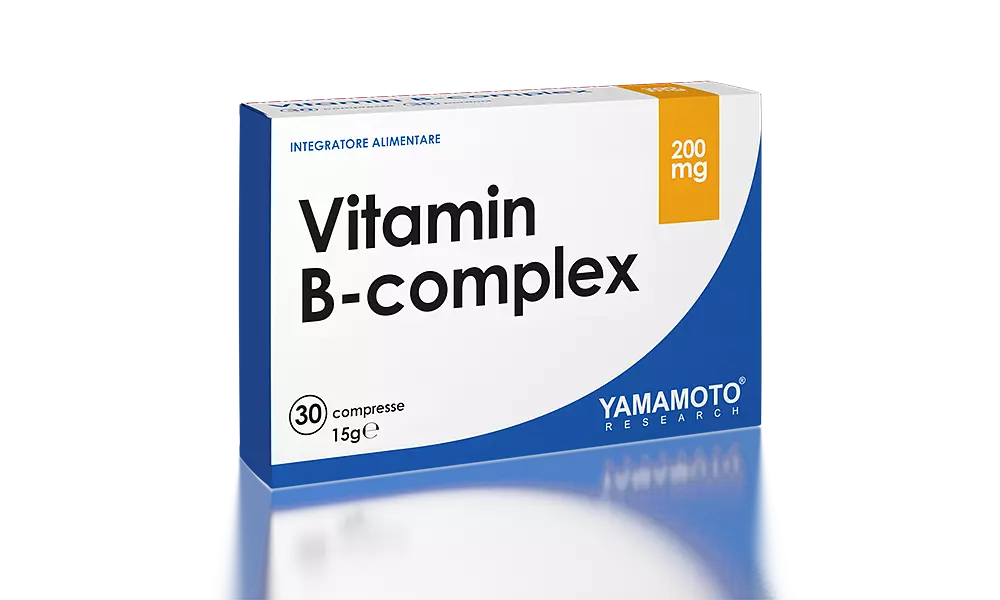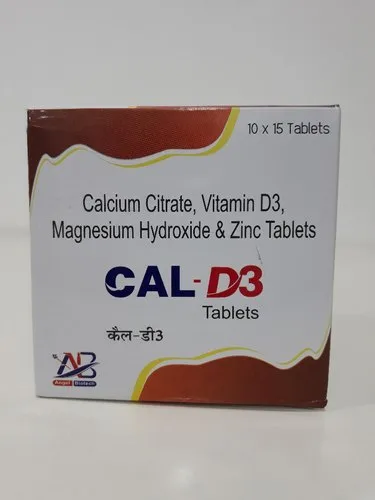Table of Contents
Vitamin B complex tablets are a priceless treasure for your health, playing a crucial role in enhancing your physical and mental well-being. This vitamin combination guides various bodily processes in the right direction, increasing your energy levels, keeping your skin healthy, and ensuring your digestive system functions properly.
In today’s busy lifestyle, where stress and tension are common, taking Vitamin B complex tablets proves to be a wise decision. The right dose of these vitamins provides your body with fresh energy, making it easier for you to accomplish your daily tasks.
As we delve into the uses of Vitamin B complex tablets in Hindi, you will discover how diverse these vitamins are and how they benefit your health. These vitamins exist in every cell of your body and help regulate various biochemical processes efficiently.
This blog post will provide you with an in-depth look at the countless benefits of Vitamin B complex tablets and how to use them correctly. Let’s learn more about this amazing vitamin combination and see how it elevates your health to new heights.
Vitamin B Complex Tablets Ingredients
Vitamin B complex tablets are a combination of various B vitamins that work together to participate in various bodily processes. The following vitamins are included in this formulation:
- Vitamin B1 (Thiamine): This vitamin assists in energy production and maintains the proper functioning of the nervous system.
- Vitamin B2 (Riboflavin): Riboflavin is crucial for the health of cells and tissues.
- Vitamin B3 (Niacin): This vitamin helps provide essential energy to your body and contributes to the health of your skin, hair, and eyes.
- Vitamin B5 (Pantothenic Acid): This vitamin aids in energy production and the metabolism of fats.
- Vitamin B6 (Pyridoxine): Vitamin B6 plays a role in various biochemical processes in the body, such as the metabolism of amino acids and glucose.
- Vitamin B7 (Biotin): Biotin is essential for the health of your skin, hair, and nails.
- Vitamin B9 (Folate): This vitamin is crucial, especially during pregnancy, as it assists in the development of the fetus.
- Vitamin B12 (Cobalamin): Vitamin B12 is important for the production of red blood cells, the health of the nervous system, and the maintenance of DNA structure.
These vitamins, when combined, create Vitamin B complex tablets that provide various benefits to your physical and mental health. Proper consumption of these vitamins is essential for your overall well-being.

Uses of 20 Vitamin B Complex Tablets in American English:
Energy Production:
Vitamin B Complex Tablets contain vitamins such as B1 (thiamine), B2 (riboflavin), B3 (niacin), and B5 (pantothenic acid), which play a crucial role in the body’s energy production process. These vitamins help release energy from food substances, making you feel active and refreshed throughout the day.
Nervous System Function:
Vitamin B6 (pyridoxine) and B12 (cobalamin) are essential for the proper functioning of the nervous system. These vitamins assist in the correct transmission of signals through nerves, ensuring that various bodily processes work correctly.
Blood Pressure Regulation:
Vitamin B3 (niacin) can help maintain normal blood pressure levels. This vitamin may serve as an approved treatment to control blood pressure, contributing to better heart health.
Gastrointestinal Health:
Vitamin B2 (riboflavin) and B3 (niacin) participate in various gastrointestinal processes. These vitamins support intestinal health and proper functioning.
Skin Health:
Vitamin B3 (niacin) and B7 (biotin) play a significant role in the health and beauty of the skin. These vitamins help control skin oiliness, reduce acne, and alleviate skin irritation and itching.
Hair Health:
Vitamin B7 (biotin) and B5 (pantothenic acid) are essential for the health and growth of hair. These vitamins promote the development of new hair and strengthen existing hair.
Digestive System:
Vitamin B1 (thiamine), B3 (niacin), and B6 (pyridoxine) are crucial for the digestive process. These vitamins enhance the activity of digestive enzymes, ensuring proper food digestion.
Bone Health:
Vitamin B6 (pyridoxine) and B12 (cobalamin) play a vital role in bone health and strength. These vitamins contribute to the formation of new bone cells and reduce the risk of conditions like osteoporosis.
Liver Function:
Various components of the Vitamin B complex, especially Vitamin B12 (cobalamin) and B6 (pyridoxine), are important for proper liver function. These vitamins help eliminate toxic substances from the liver, support fat metabolism, and aid in amino acid metabolism.
Skin Health:
Vitamin B3 (niacin) and B7 (biotin) are essential for the health and beauty of the skin. These vitamins help control skin oiliness, reduce acne, and alleviate skin irritation and itching.
Hair Health:
Vitamin B7 (biotin) and B5 (pantothenic acid) are essential for the health and growth of hair. These vitamins promote the development of new hair and strengthen existing hair.
Digestive System:
Vitamin B1 (thiamine), B3 (niacin), and B6 (pyridoxine) are crucial for the digestive process. These vitamins enhance the activity of digestive enzymes, ensuring proper food digestion.
Mental Alertness and Memory:
Vitamin B6 (pyridoxine), B9 (folic acid), and B12 (cobalamin) play a vital role in mental alertness and memory. These vitamins enhance brain function and support neurological health, even reducing the risk of memory loss in old age.
Reducing Physical and Mental Fatigue:
Vitamin B5 (pantothenic acid) and B12 (cobalamin) in Vitamin B Complex can help reduce fatigue and boost energy levels. These vitamins assist in keeping you fresh and active throughout the day.
Boosting the Immune System:
Vitamin B6 (pyridoxine) and B9 (folic acid) strengthen the immune system. These vitamins enhance the body’s ability to fight viruses and infections.
Anemia Management:
Vitamin B6, B9, and B12 are crucial for managing anemia. These vitamins help in the production of red blood cells and can correct blood deficiency.
Reducing the Risk of Heart Diseases:
Vitamin B3 (niacin) and B6 (pyridoxine) contribute to maintaining healthy blood vessels and controlling blood pressure, reducing the risk of heart diseases.
Managing Diabetes:
Vitamin B1 (thiamine) and B3 (niacin) help regulate blood sugar levels. These vitamins improve insulin sensitivity and assist in managing diabetes.
Eye Health:
Vitamin B2 (riboflavin) and Vitamin B12 (cobalamin) play an essential role in eye health. These vitamins help maintain good vision and reduce the risk of conditions like cataracts.
Hormone Regulation:
Vitamin B5 (pantothenic acid) and Vitamin B6 (pyridoxine) assist in hormonal balance, regulating various bodily functions.
Pregnancy and Breastfeeding:
Vitamin B9 (folic acid) and Vitamin B12 (cobalamin) are vital for meeting the nutritional needs of women during pregnancy and breastfeeding. These vitamins support the health and development of the baby.
Mood Stabilization:
Vitamin B6 (pyridoxine), B9 (folic acid), and B12 (cobalamin) play a crucial role in mood stabilization. These vitamins help maintain mental well-being and reduce the symptoms of depression.
Red Blood Cell Production:
Vitamin B6 (pyridoxine), Vitamin B9 (folic acid), and Vitamin B12 (cobalamin) aid in the production of red blood cells. These vitamins are essential for proper blood circulation and oxygen distribution.
Consuming Vitamin B Complex Tablets can generally improve various processes and aspects of your body’s health. These different B vitamins contribute to liver, skin, hair, digestive system, brain function, eye health, hormonal balance, pregnancy, mood, and blood production in various ways, ultimately benefiting your overall health and well-being.
Diet Plan to Obtain Vitamin B in Your Daily Routine:
Including various food items in your daily diet plan is essential to obtain different components of the Vitamin B complex. Here is a balanced diet plan that will help you fulfill the requirements of various Vitamin B complex components:
Breakfast:
- A bowl of porridge or oats, providing Vitamin B1 (thiamine) and B5 (pantothenic acid).
- Milk and a fruit like a banana or apple.
Lunch:
- A serving of lentils or chickpeas, which provide Vitamin B1, B3 (niacin), and B9 (folic acid).
- Fresh green vegetables that provide Vitamin B2 (riboflavin) and B6 (pyridoxine).
- Bread or rice.
Afternoon Snack:
- A handful of almonds or walnuts, providing Vitamin B2 and B7 (biotin).
Dinner:
- Lean protein sources like chicken, fish, or cottage cheese, which provide Vitamin B3, B6, and B12 (cobalamin).
- Fresh green vegetables and a serving of lentils.
Night Snack:
- A glass of milk that provides Vitamin B2 and B12.
By following this diet plan, you can incorporate various components of the Vitamin B complex into your daily nutrition.
Sources of Vitamin B Acquisition:
Vitamin B1 (Thiamine):
- Sources: Cereals, lentils, eggs, liver, and nuts.
- Benefits: This vitamin aids in energy production and the proper functioning of the nervous system.
Vitamin B2 (Riboflavin):
- Sources: Milk, cheese, almonds, and green vegetables.
- Benefits: This vitamin helps in the proper functioning of cells and energy metabolism.
Vitamin B3 (Niacin):
- Sources: Meat, fish, lentils, and eggs.
- Benefits: This vitamin assists in the metabolism of fats and glucose in your body.
Vitamin B5 (Pantothenic Acid):
- Sources: Chicken, lentils, and fresh green vegetables.
- Benefits: This vitamin helps in the metabolism of fats, proteins, and carbohydrates.
Vitamin B6 (Pyridoxine):
- Sources: Chicken, fish, potatoes, and grains.
- Benefits: This vitamin aids in neurotransmitter production and the production of red blood cells.
Vitamin B7 (Biotin):
- Sources: Eggs, almonds, and milk.
- Benefits: This vitamin is essential for the health of your skin, hair, and nails.
Vitamin B9 (Folic Acid):
- Sources: Leafy green vegetables, lentils, and grains.
- Benefits: This vitamin is crucial during pregnancy and before it.
Vitamin B12 (Cobalamin):
- Sources: Meat, milk, cheese, and eggs.
- Benefits: This vitamin supports the production of red blood cells and the proper functioning of the nervous system.

Digestive and Skin Reactions to Vitamin B Complex Tablets:
Digestive Issues:
- Stomach Pain: Occasionally, taking Vitamin B complex tablets can cause discomfort or pain in the stomach.
- Diarrhea: Some individuals may experience diarrhea as a side effect, which can lead to dehydration.
- Nausea: These tablets may sometimes induce nausea, making it difficult to consume food.
- Abdominal Pain: Other digestive issues such as gas and acidity can also occur.
Skin Reactions:
- Skin Redness: The consumption of Vitamin B complex tablets may lead to redness on the skin.
- Itching: These tablets can sometimes cause itching and irritation.
- Skin Rash (Hives): Hives, which are red, itchy welts on the skin, can occur as an allergic reaction to Vitamin B complex tablets.
Urinary Changes:
- Frequent Urination: Occasionally, the use of Vitamin B complex tablets can increase the frequency of urination as they help excrete excess B vitamins.
- Changes in Urine Color: The color of urine can become yellow or brown due to the presence of Vitamin B2 (Riboflavin).
Blood-Related Issues:
- Dark, Sticky, or Bloody Stools: This could be a severe condition indicating internal bleeding. If you experience this, seek immediate medical attention.
Hyperglycemia (High Blood Sugar): Some studies suggest that excessive intake of Vitamin B complex may affect blood sugar levels, especially Vitamin B3 (Niacin).
Allergic Reactions:
- Swelling of Face, Lips, Tongue, or Throat: In some individuals, allergic reactions have been observed. Severe swelling, especially if it affects breathing, requires immediate medical attention.
Neurological:
- Dizziness: Occasionally, dizziness can occur as a side effect of Vitamin B complex tablets. This could be due to excessive Vitamin B6 or B12 intake. If you experience dizziness or balance issues, consult your doctor.
General Discomfort:
- Fever: Some people may experience fever after taking Vitamin B complex tablets.
- Abdominal Cramps: These tablets can sometimes trigger abdominal cramps.
- Severe Stomach Pain: If taken in excessive quantities, Vitamin B complex tablets can cause severe stomach pain.
- Coffee Ground Vomiting or Bloody Vomiting: This is especially concerning and may indicate internal bleeding, necessitating immediate medical attention.
Hyperglycemia Symptoms:
- Increased Thirst: An increased thirst is a common symptom of hyperglycemia (high blood sugar).
- Frequent Urination: High blood sugar levels can lead to frequent urination.
- Unusual Fatigue or Weakness: Elevated blood sugar levels can make you feel very tired and weak.
- Blurred Vision: Hyperglycemia can affect your vision, causing blurred vision.
Frequently Asked Questions (FAQs):
What is B complex tablets used for?
B complex tablets provide various B vitamins that assist in the body’s metabolism, energy production, and the proper functioning of the nervous system.
What is the use of B complex tablet daily?
Daily intake of B complex tablets provides your body with essential B vitamins that help maintain your energy levels and support the proper functioning of your nervous system, digestive system, and heart health.
Can I take vitamin B complex every day?
Yes, you can take vitamin B complex every day, but it’s important to ensure that you are taking the correct dosage. Consulting your doctor is the best approach.
What is the right time to take B complex tablet?
The best time to take B complex tablets is usually in the morning when your body requires energy. However, your doctor may recommend a specific time for you.





